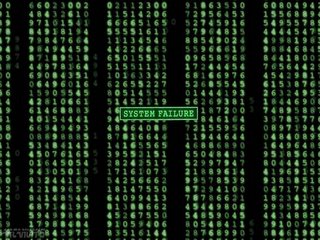The abject failure of school-based occupational therapy
 I think that we can often learn best from our largest mistakes and shortcomings. This kind of topic will not win me friends among those people who aren't interested in delving into the issues in a real way - but sometimes an issue just screams to be expressed.
I think that we can often learn best from our largest mistakes and shortcomings. This kind of topic will not win me friends among those people who aren't interested in delving into the issues in a real way - but sometimes an issue just screams to be expressed.This vignette does not represent ALL school based practice, but it represents enough that merits some serious discussion.
I received a phone call from a CSE chairperson today who wanted me to present my independent evaluation at a meeting. He was confused that I was recommending occupational therapy services to a pre-adolescent 12 year old child. The child has a non verbal learning disability and is failing in school. He received occupational therapy until he was in 4th grade, after which time he was discharged.
"I don't understand how a child this old can benefit from occupational therapy," said the chairperson. "We don't provide occupational therapy services to children this old."
I was intrigued by the concept that a twelve year old was somehow not likely to improve their capabilities. My evaluation demonstrated that the child could not functionally write and that he was having a significant difficulty in participating in his curriculum because of this writing disability. He was failing most of his classes due to poor writing skills and limited organizational skills.
I decided to ask the chairperson a few questions, just to poke at his value system a little. "So what was the entire point of occupational therapy services when this child was between the ages of 5 and 10?" The chairperson replied, "He needed to improve his writing skills."
Now that is just fine, except that my evaluation indicated that he has no functional writing skills at all and that the very little that he is able to produce is on a computer - but that he even lacks age appropriate typing capabilities. My independent evaluation recommended occupational therapy services to teach the child organizational strategies and to work on his skills with accessing computer technology for typing his assignments.
I stated to the chairperson, "The whole purpose of occupational therapy for over five years was to help him develop writing skills. Now here he is in 7th grade and he still has no writing skills. Don't you think there is some problem that needs to be investigated, or should we instead ignore the obvious fact that he simply can't write or get himself organized?"
The child's fourth grade IEP had occupational therapy goals on it related to improving unilateral standing balance, improving ability to find words in a word search puzzle, and improving ability to copy forms on the Developmental Test of Visual Motor Integration. At the end of the year the COTA who was treating him indicated that his balance and visual motor skill had improved because of small raw score improvements over the course of the year. The discharge summary indicated that Brain Gym activities were used in therapy once a week and he had improved and that he would no longer benefit from occupational therapy. There was no OTR commentary or co-signature on the documentation.
The CSE chairperson replied to me, "Well how exactly can occupational therapy benefit him at this point in time?"
"I would suggest that occupational therapy WON'T benefit him if they spend their time doing word search puzzles once weekly or participating in some foolish Brain Gym activities. However, if he is trained in functional task-oriented organizational strategies and these are communicated to the team and progress in monitored on a regular basis - he may have a greater chance of achieving some benefit. Also, if he is taught how to type and how to access a word processer then he may have a better chance of handing in writing assignments."
Should I blame the CSE chairperson who has been educated to believe that OT ends in fourth grade? Should I instead blame the occupational therapist for thinking that unproven pseudoscientific intervention strategies constitute 'best practice?' Should I blame the occupational therapist for failing to document progress with the appropriate use of standardized tests? Should I wonder why a CSE has come to believe that occupational therapy can't be provided to teach a set of very concrete and functional skills in middle school, but it is ok to provide it for 5 straight years and have no one question the efficacy of the program in elementary school?
If the occupational therapy profession wants to convince anyone that it has a vital and unique role to play in the education of children, it will need to do a lot better than what it is doing now.


Comments
Your observations are sad but (in my limited experience) on target. Over 15 years ago I left school therapy work because the movement for inclusion was pushing therapists into the classrooms and relegating us to handwriting aides. Now I have re-entered school OT on a limited basis and find that little has changed except that the frequencies we are allowed (e.g. 20 minutes twice monthly) are vastly reduced.
Thanks for you comments.
My experience in school-based practice was similar to yours. After three years with satisfied students, parents, and teachers, but reduced funding and administrators placing more limits on frequency and duration of sessions, I have changed my area of practice. Now I attempt to affect students by offering free in-services to teachers and support lobbying of our legislators. Very frustrating.
Mary C., OT
F. A. (OT since Nov. 2014)